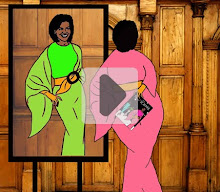
When did America lose it’s sense of humor? Sometime between 2000, when George W. won the presidency with hanging chads that led to the left’s unshakeable belief that it was a “stolen election,” and 9/11. The terrorist attack on New York immediately led to mostly leftist declarations of the end of irony, led by Graydon Carter, then editor of Vanity Fair:
"There's going to be a seismic change. I think it's the end of the age of irony."
At about the same time Roger Rosenblatt wrote in an essay for Time:
“One good thing could come from this horror: it could spell the end of the age of irony.”
What they meant of course was that the sort of cynicism that permeated pop culture, that mocked and dismissed any sort of extremist beliefs, was a thing of the past. Fairly soon thereafter it seemed everybody and their grandmother declared the end of irony.
As it turned out irony was not dead at all, it was just revised to exclude certain forms of extremism – all things Islamic - and redefined to identify what sorts are still okay to be cynically mocked and ridiculed: Christians, whites, conservatives. As it turned out, at the dawn of the 21st century irony did not die it just became unfunny. Unless you were a member of “the club.”
So when Jay Leno complained that late night comedy is no longer funny because it’s just too political, that’s what he meant. The “comics” can no longer provide the country with universal humor because they are more interested in sharing and airing their political beliefs and agendas than they are in providing entertainment.
Just as Bill Maher acknowledged of the “cultural appropriation” phenomenon - it’s “made up” because these people “just want to bitch,” – late night TV has turned into commercial supported bitching sessions for likeminded politicos.

So you see, irony is far from dead.

























